Critical Thinking Normal Community Worksheets for Ages 6-7
5 filtered results
-
From - To
Foster essential critical thinking skills in young learners with our "Critical Thinking Normal Community Worksheets" designed for ages 6-7. These engaging and interactive worksheets focus on developing problem-solving abilities, logical reasoning, and analytical thinking. Tailored for 1st and 2nd graders, they encourage curiosity about their community through activities that promote understanding and connections within society. Perfect for both classroom and home use, these worksheets provide a foundation for lifelong critical thinking abilities. Help your child or student explore and analyze their surroundings while having fun with age-appropriate and thoughtful exercises. Unlock their potential today!
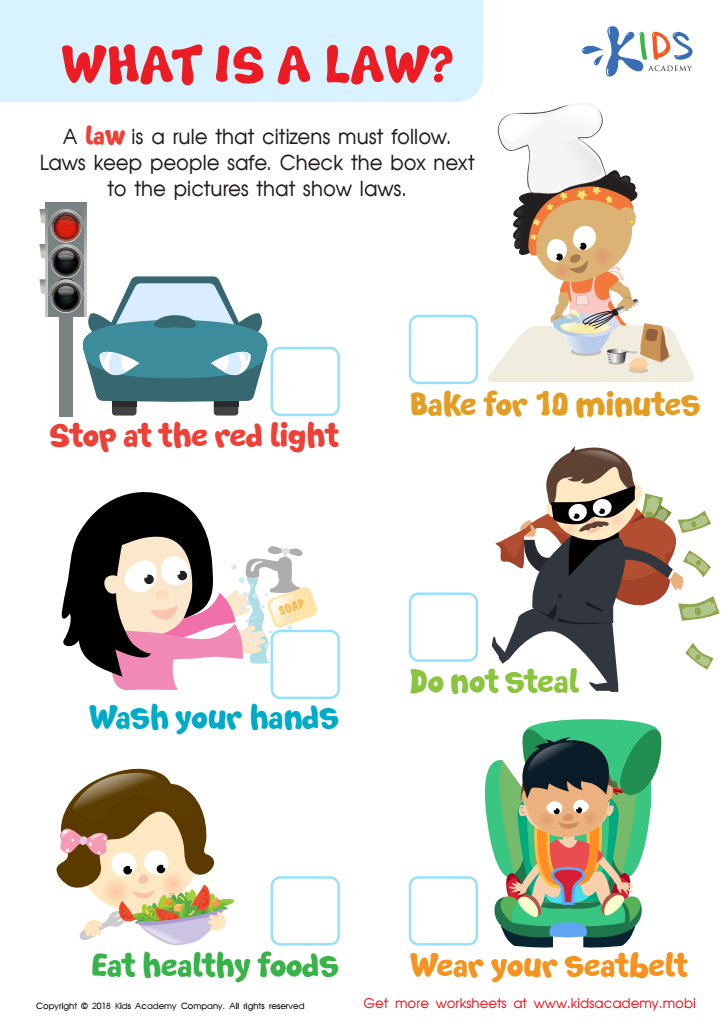

What is a Law? Worksheet
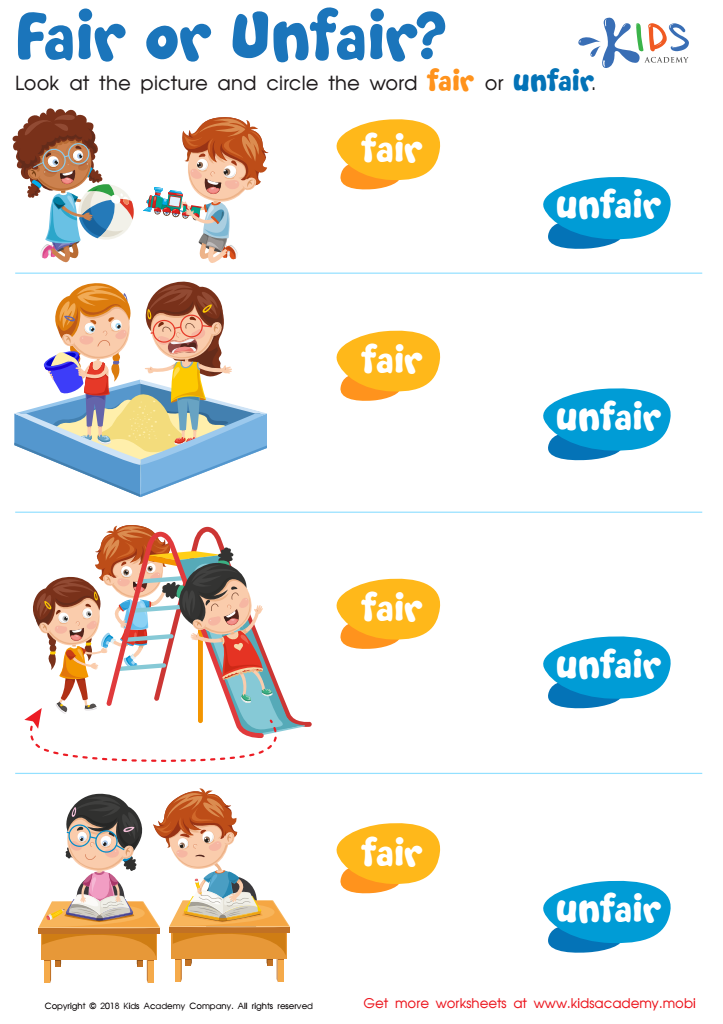

Fair or Unfair Worksheet
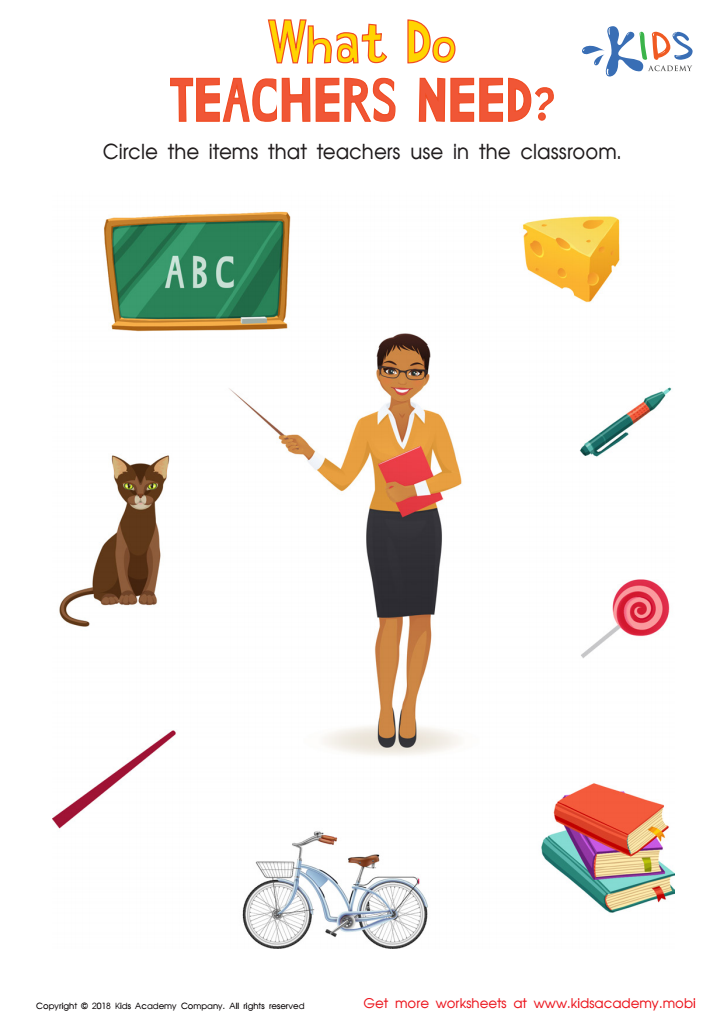

What Do Teachers Need Worksheet
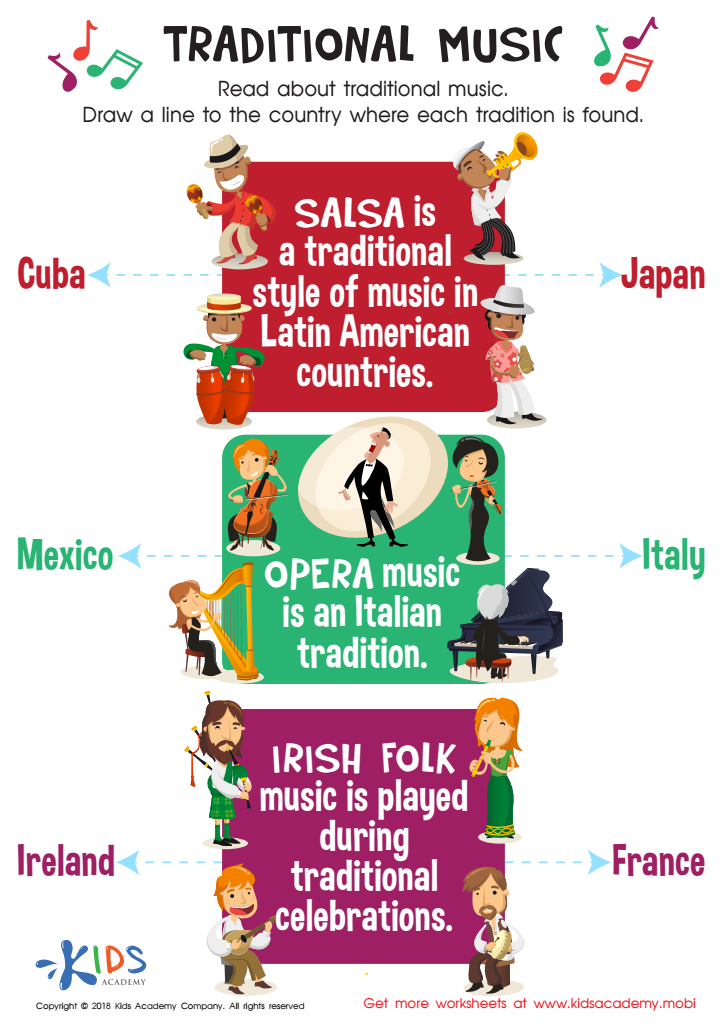

Traditional Music Worksheet
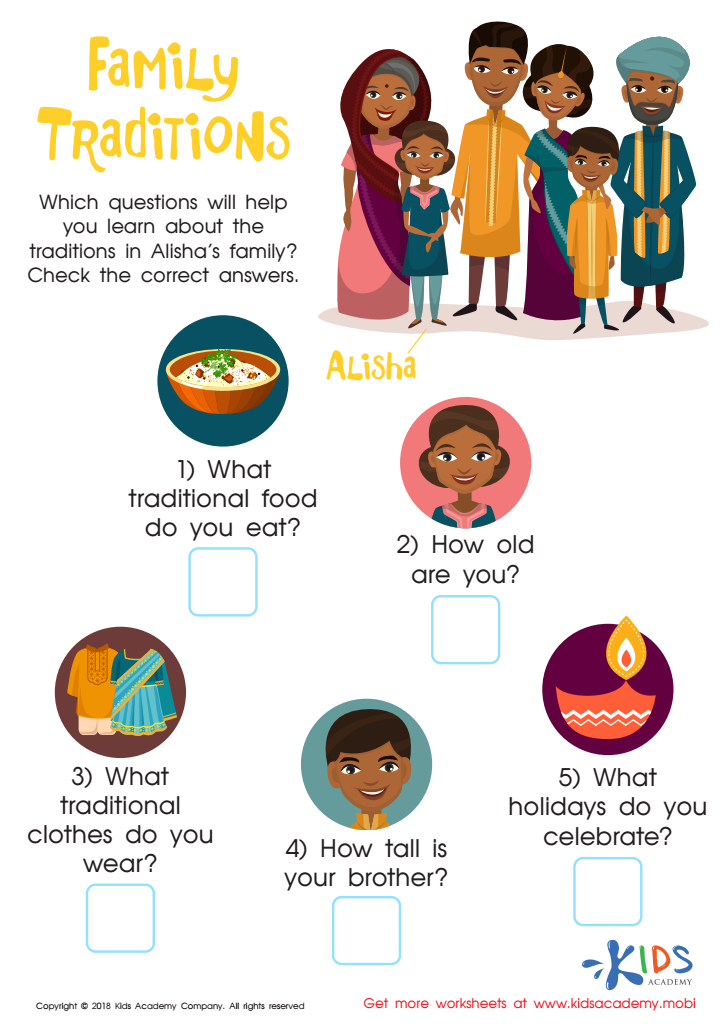

Family Traditions Worksheet
Critical thinking is essential for children ages 6-7 as it lays the foundation for lifelong learning and problem-solving skills. At this early age, kids are naturally curious and eager to explore the world around them. Parents and teachers fostering critical thinking can enhance this innate curiosity, helping children develop the ability to analyze, evaluate, and synthesize information.
Promoting critical thinking in a community setting encourages cooperative learning and diverse perspectives. When young children interact in a group that values critical thinking, they learn to respect different viewpoints, articulate their own thoughts clearly, and build on each other's ideas. This collaborative environment nurtures social and emotional growth, alongside intellectual development.
Furthermore, critical thinking helps children become independent learners. This skill set enables them to ask pertinent questions, identify problems, and come up with viable solutions. It reduces dependency on rote learning and encourages a deeper understanding of concepts, which is crucial in a rapidly changing world.
Investing in critical thinking at an early age cultivates resilient, adaptable minds. These are the individuals who will go on to tackle complex issues and thrive in a variety of challenges. Parents and teachers must, therefore, emphasize this competency to prepare children not just for academic success, but for life itself.

 Assign to My Students
Assign to My Students





















